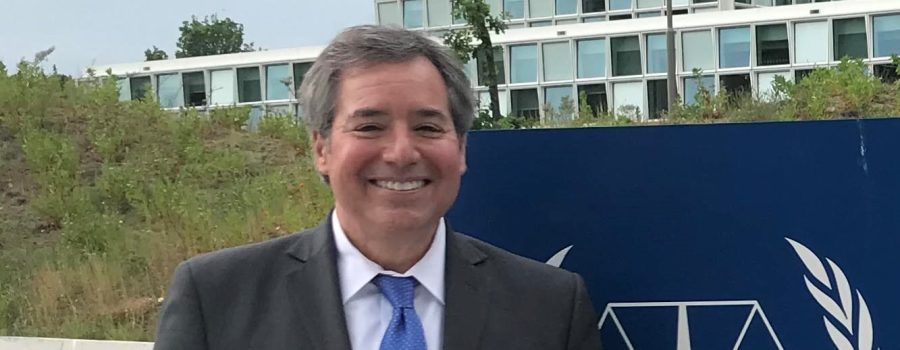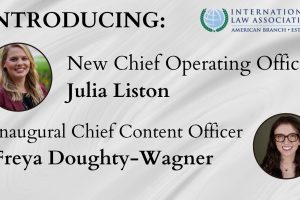Meet Our Members – Michael Scharf
In honor of the 100th anniversary of the American Branch, we are pleased to introduce you to some of the members who make our organization great.
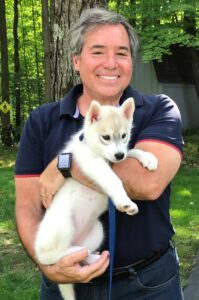
Michael Scharf is Dean of Case Western Reserve University School of Law and President-Elect of the American Branch of the International Law Association. He is the author of 20 books and hosts an international affairs radio program called “Talking Foreign Policy” on Cleveland’s NPR station.
How did you get involved in international law?
This will sound geeky, but my interest began through High School Model UN. In college I was the Secretary-General of the National High School Model UN Conference and gave a keynote address in the UN General Assembly Hall. Ten years later, when I was Attorney-Adviser for UN Affairs at the US Department of State, I was making interventions in the same UN General Assembly Hall, but this time it was real.
Why is international law important to you?
I grew up with the goal of making an impact on the world. Through my work at the State Department, the NGO that I co-founded (Public International Law & Policy Group (PILPG)), and my academic publications and amicus briefs, I’ve been able to help bring peace and justice to troubled parts of the world.
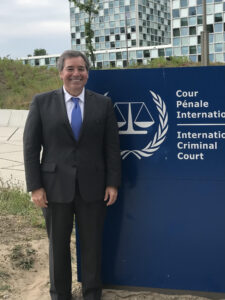 What are you currently working on?
What are you currently working on?
I delivered an Amicus Argument before the Appeals Chamber of the International Criminal Court in The Hague on the insanity defense in the Ongwen case back in February 2022. That decision should come out this fall. I’m currently working with PILPG and the government of Ukraine on draft legislation to create a High War Crimes Chamber for Ukraine. It would be an internationalized domestic tribunal to prosecute mid-level perpetrators of war crimes and crimes against humanity in the Ukraine conflict.
What do you teach and how has this subject evolved over the past few years?
In addition to being Dean of the Law School, I teach the introductory International Law course. That course changes every time I teach it due to world events. Last year, my focus was on how the Syrian conflict had changed international law. This year, it will be all about Ukraine. In addition, I coach my law school’s Jessup International Law Moot Court team. We won the World Championship a few years ago, came in 3rd in the world in 2021, and were ranked 14th best in 2022, with the #1 oralist in the advanced global rounds. I love learning about new areas of international law in relation to the annual Jessup Problems — last year it was about cyber intervention in foreign elections.
Could you tell us about one of your recent publications?
A few years ago I wrote a book (Customary International Law in Times of Fundamental Change (Cambridge University Press, 2013)) about the concept of Grotian Moments — events that trigger accelerated formation of customary international law. The Max Planck Institute in Germany recently hosted a conference about the concept, where experts throughout the world critiqued my thesis and applied it to new situations. My article and the other papers from the conference have been published in Grotiana and a book is forthcoming.
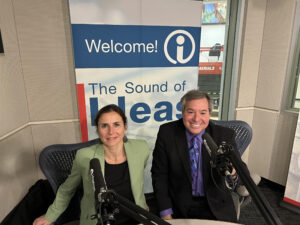
What is an emerging issue in your field and how are you engaged in this?
The current paralysis in the Security Council due to Russia’s vetoes has created a power shift to the UN General Assembly. I’ve organized a panel of experts to explore the implications of this phenomenon at ABILA’s International Law Weekend/Midwest at Case Western Reserve University on September 30, 2022, and I’m currently writing an article on the topic.
What advice do you have for students and early career lawyers interested in international law?
For students, I encourage them to pursue international law internships. Those open so many doors in the field. For early career lawyers, I encourage them to network: join ABILA, participate on a committee, volunteer to write a report, and propose a panel for International Law Weekend. Those activities so often lead to exciting opportunities in the field.
Watch Michael Scharf’s member profile:

